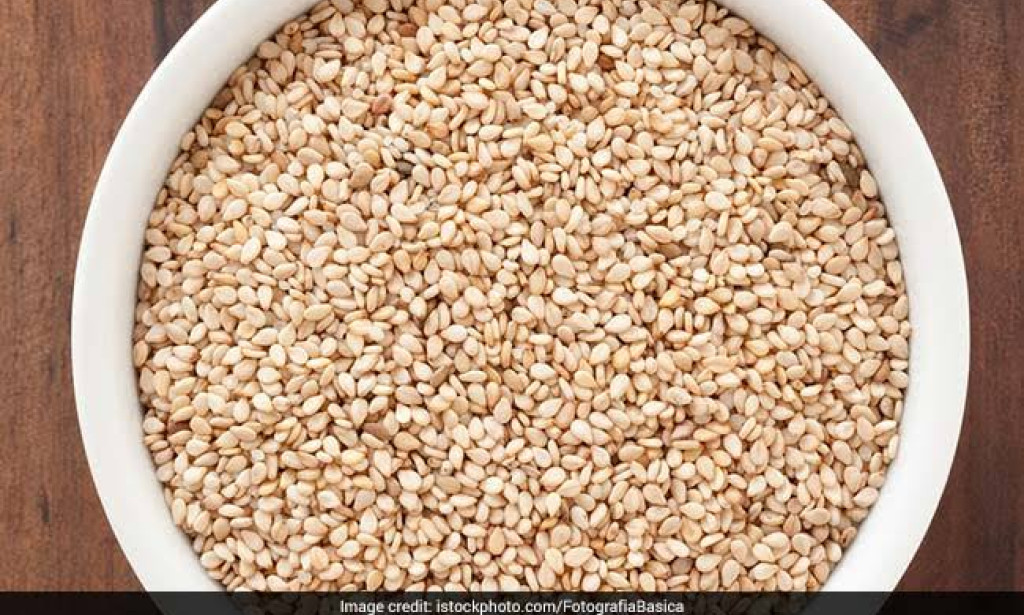Table of Contents
- Introduction: Why Sesame Seeds Are a Winter Superfood
- Nutritional Benefits of Sesame Seeds
- Sesame Seeds for Boosting Immunity in Winter
- Warming and Energizing Properties of Til
- Sesame Seeds and Skin Care During Winter
- Delicious Ways to Incorporate Til into Your Winter Diet
- Conclusion: Make Sesame Seeds a Staple in Your Winter Diet
1. Introduction: Why Sesame Seeds Are a Winter Superfood
As winter arrives and temperatures drop, our bodies require extra nourishment to stay healthy and energized. Sesame seeds (til), often seen in festive dishes or sprinkled over snacks, are a perfect addition to your winter diet. Packed with essential vitamins, minerals, and antioxidants, til not only adds flavor but also offers a wealth of benefits that are particularly suited for the colder months. Rich in healthy fats, protein, and key nutrients, sesame seeds help keep the body warm, support immune health, and provide vital energy during the short, chilly days of winter.
Historically, til has been a popular food in many cultures for its warming properties, and its inclusion in winter meals is deeply rooted in traditional practices. In India, sesame seeds are often consumed in the form of laddoos or sweets during festivals like Makar Sankranti, as it is believed to bring warmth to the body and keep cold-related illnesses at bay. As a superfood, sesame seeds can be easily incorporated into various dishes, making them a versatile ingredient for your winter menu.
2. Nutritional Benefits of Sesame Seeds
Sesame seeds are packed with a broad range of nutrients that can significantly enhance your overall health. They are an excellent source of essential fatty acids, including both omega-3 and omega-6, which are vital for maintaining cardiovascular health. Additionally, sesame seeds are rich in antioxidants such as sesamin, sesamol, and lignans, which help protect cells from oxidative stress and inflammation.
These tiny seeds are also an impressive source of plant-based protein, making them an ideal choice for vegetarians and vegans. In addition to protein, sesame seeds are high in fiber, which aids digestion and supports healthy gut function. The high levels of calcium, iron, magnesium, and zinc found in sesame seeds make them beneficial for bone health, immune support, and energy production. These minerals are particularly important during the winter months, when the body is more prone to fatigue and weakened immunity due to the cold weather.
3. Sesame Seeds for Boosting Immunity in Winter
One of the primary reasons to include sesame seeds in your winter diet is their ability to strengthen the immune system. Winter is often associated with a higher incidence of colds, flu, and other viral infections, making it essential to consume foods that support immunity. Sesame seeds are rich in zinc, an essential mineral that plays a crucial role in immune function. Zinc helps produce and activate immune cells, such as T-cells and neutrophils, which are vital for defending the body against pathogens.
Furthermore, the antioxidants in sesame seeds help fight oxidative stress and inflammation, which can weaken the immune system over time. Regular consumption of til, especially in the winter, can help boost the body's defense mechanisms, ensuring that you stay healthy and resilient against the common illnesses that often plague the season.

4. Warming and Energizing Properties of Til
As per traditional wisdom, sesame seeds are known for their ability to generate heat in the body, making them an ideal food to consume during the winter. The warming properties of til help maintain internal warmth, preventing the cold from sapping your energy. This is particularly important during the colder months, when we are more susceptible to feeling sluggish or low on energy due to the cold weather and shorter days.
The high fat content in sesame seeds provides a steady source of energy, helping you stay active and engaged throughout the day. Additionally, til contains natural compounds that support the functioning of the thyroid gland, which regulates metabolism and body temperature. Consuming sesame seeds regularly during winter can keep your energy levels stable and your body temperature regulated, making you feel warmer and more energized.
5. Sesame Seeds and Skin Care During Winter
Winter can take a toll on your skin, leaving it dry, cracked, and prone to irritation. Sesame seeds can play a significant role in promoting skin health during these harsh months. The oils found in sesame seeds are rich in vitamin E, an antioxidant that helps protect the skin from oxidative damage caused by environmental stressors, such as cold air and indoor heating.
Additionally, the fatty acids in sesame seeds provide deep hydration, making them an excellent choice for combating winter dryness. Consuming sesame seeds helps nourish the skin from within, while topical application of sesame oil can moisturize and soothe the skin, helping to prevent dryness and flakiness. Whether you choose to eat til or apply sesame oil topically, this superfood can contribute to smoother, healthier skin during winter.

6. Delicious Ways to Incorporate Til into Your Winter Diet
Sesame seeds are versatile and can be easily included in your winter meals. Here are a few ways to incorporate til into your daily diet:
- Sesame Seed Laddoos: A popular winter treat in India, these energy-packed sweets are made by roasting sesame seeds and mixing them with jaggery or honey.
- Til Chutney: Ground sesame seeds can be used to make a flavorful chutney that pairs well with a variety of winter dishes, from parathas to curries.
- Sesame Oil for Cooking: Replace regular cooking oils with sesame oil for stir-frying or sautéing vegetables and meats. The oil adds a rich, nutty flavor to any dish.
- Sesame Seed Smoothies: Add a spoonful of sesame seeds to your winter smoothies for an extra boost of nutrients and healthy fats.
- Sesame Seed Garnish: Sprinkle roasted sesame seeds over soups, salads, or steamed vegetables to add crunch and nutrition.
7. Conclusion: Make Sesame Seeds a Staple in Your Winter Diet
Including sesame seeds (til) in your winter diet is an easy and delicious way to support your health during the colder months. From boosting immunity to promoting energy and skin health, sesame seeds offer a range of benefits that are particularly valuable in winter. Whether consumed as part of traditional sweets, sprinkled over meals, or used in cooking, til is a nutrient-dense superfood that should not be overlooked. So, this winter, make sure to add sesame seeds to your meals and enjoy their warmth, nourishment, and health benefits.



You must be logged in to post a comment.